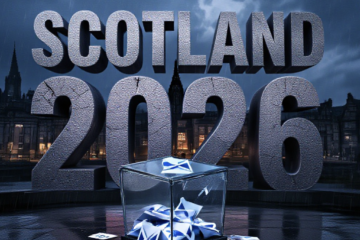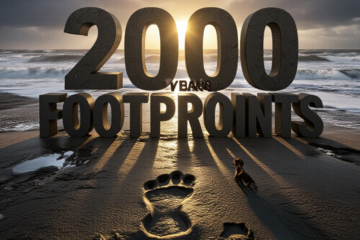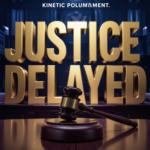Scotland is pushing for major changes in its education system, drawing inspiration from the Scottish Enlightenment to counter modern ideologies like Woke culture. Experts and think tanks call for teachers to embrace civilization’s values, starting with reforms in teacher training, amid growing concerns over declining student performance and ideological influences in classrooms.
This movement gained traction after a recent ThinkScotland event where Dr. Stuart Waiton urged educators to believe in civilization to teach with authority. As Scotland faces educational challenges in 2025, including falling math scores and skills gaps, leaders see Enlightenment ideas as a path to renew national identity and boost learning outcomes.
Roots in the Scottish Enlightenment
The Scottish Enlightenment, spanning the 18th century, shaped modern thought with figures like David Hume and Adam Smith. These thinkers promoted reason, progress, and human equality, influencing global education and science.
Scotland’s education system once led the world, thanks to this era. Parish schools expanded, and universities reformed under leaders like Andrew Melville. Today, reformers argue these roots can fix current issues, such as uneven access in the Highlands versus Lowlands.
Enlightenment ideas stressed that morality comes from human experience, not divine rules. This view contrasts with what critics call reactionary ideologies that push fixed identities and prejudice.
Recent data shows Scotland’s literacy rates remain high, but international tests like PISA reveal slips in math and science since 2018. Proponents say reviving Enlightenment principles could reverse this trend.

Critique of Modern Ideologies
Critics like Waiton point to Woke ideology as a barrier to effective teaching. They say it replaces traditional values with prescriptive rules, echoing past missionary zeal but in a new form.
This ideology, some argue, fills a void left after empire’s end and religion’s decline. It appeals to a “new class” of administrators and educators, much like communism or Nazism did in history.
In Scotland, this shows in debates over curriculum content. For instance, recent pushes for inclusive education sometimes clash with calls for core knowledge transmission.
A 2025 survey by the Scottish Government found 65 percent of teachers feel pressured by ideological trends, impacting their ability to focus on foundational skills.
Push for Teacher Training Reforms
Reform starts with teacher training colleges, experts say. Waiton suggests instilling a belief in civilization to give educators confidence and authority.
Current training often emphasizes equity and diversity, but critics want more focus on Enlightenment values like rational inquiry and progress.
Scotland’s government has initiated reviews of teacher education in 2025, aiming to align with global standards. This includes partnerships with universities to update curricula.
Key proposed changes include:
- Mandatory modules on Scottish Enlightenment history.
- Training in critical thinking to counter ideological biases.
- Emphasis on equal access to “the best of what has been thought and written.”
These reforms could help teachers resist irrational ideologies and foster a mainstream belief in human progress.
One model comes from China, where educators prioritize cultural heritage. Scottish reformers see parallels in promoting national intellectual legacy.
Current Education Challenges in Scotland
Scotland’s schools face multiple hurdles in 2025. Declining attainment in primary math has sparked innovation, like journaling techniques to boost engagement.
A recent report highlights the need for urgent college reforms to address skills gaps amid global changes.
| Challenge | Impact | Proposed Solution |
|---|---|---|
| Falling math scores | Lower international rankings | Introduce Enlightenment-based critical thinking |
| Ideological pressures | Divided classrooms | Reform teacher training for balanced views |
| Skills mismatch | Unemployment among youth | Align curricula with modern job needs |
| Regional disparities | Poorer outcomes in Highlands | Expand access via digital tools |
This table shows key issues and fixes tied to Enlightenment revival.
Immigration and industrialization have disrupted traditional systems, much like in the 18th century. Yet, Scotland’s university legacy, producing Enlightenment giants, offers a blueprint.
Path Forward and National Identity
Reviving the Scottish Enlightenment could reposition Scotland as Europe’s thought leader. Think tanks like the newly renamed Enlighten, formerly Reform Scotland, push this agenda.
In May 2025, the rebranding avoided confusion with political parties and honored Enlightenment heritage. It reflects a broader call to root identity in Scotland’s contributions to modernity.
Politicians are urged to speak proudly of this history. After socialism and nationalism’s setbacks, focusing on intellectual achievements could unite the nation.
Education reform might inspire similar changes elsewhere. By starting with teachers, Scotland aims to build a consensus around civilization, countering divisive ideologies.
Global Context and Lessons
Scotland’s efforts mirror global trends. In the US and France, Enlightenment ideas influenced revolutions, and now fuel education debates.
High literacy in 18th-century Scotland spread radical thoughts, much like today’s digital age. Reformers draw parallels to ensure progress benefits all.
A 2025 study by Britannica notes Edinburgh as a past “hotbed of genius,” suggesting it could reclaim that role.
Challenges remain, including funding and resistance. Yet, with belief in civilization, teachers can lead the way.
What do you think about reforming Scotland’s education with Enlightenment principles? Share your views in the comments and spread this article to join the conversation.


















